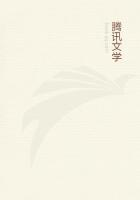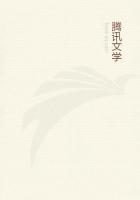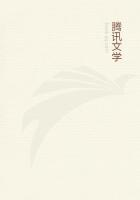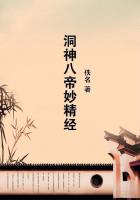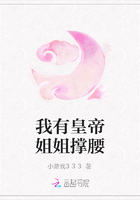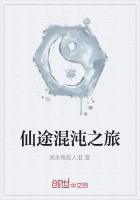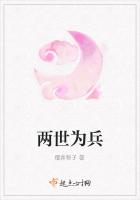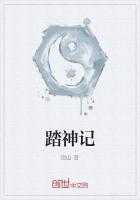"Prends garde e moi, ma fille, et couvre moi bien!" Marceline Desbordes-Valmore, writing from France to her daughter Ondine, who was delicate and chilly in London in 1841, has the same solicitous, journeying fancy as was expressed by two other women, both also Frenchwomen, and both articulate in tenderness. Eugenie de Guerin, that queen of sisters, had preceded her with her own complaint, "I have a pain in my brother's side"; and in another age Mme. de Sevigne had suffered, in the course of long posts and through infrequent letters--a protraction of conjectured pain--within the frame of her absent daughter. She phrased her plight in much the same words, confessing the uncancelled union with her child that had effaced for her the boundaries of her personal life.
Is not what we call a life--the personal life--a separation from the universal life, a seclusion, a division, a cleft, a wound? For these women, such a severance was in part healed, made whole, closed up, and cured. Life was restored between two at a time of human- kind. Did these three women guess that their sufferings of sympathy with their children were indeed the signs of a new and universal health--the prophecy of human unity?
The sign might have been a more manifest and a happier prophecy had this union of tenderness taken the gay occasion as often as the sad.
Except at times, in the single case of Mme. de Sevigne, all three--
far more sensitive than the rest of the world--were yet not sensitive enough to feel equally the less sharp communication of joy. They claimed, owned, and felt sensibly the pangs and not the pleasures of the absent. Or if not only the pangs, at least they were apprehensive chiefly in that sense which human anxiety and foreboding have lent to the word; they were apprehensive of what they feared. "Are you warm?" writes Marceline Valmore to her child.
"You have so little to wear--are you really warm? Oh, take care of me--cover me well." Elsewhere she says, "You are an insolent child to think of work. Nurse your health, and mine. Let us live like fools"; whereby she meant that she should work with her own fervent brain for both, and take the while her rest in Ondine. If this living and unshortened love was sad, it must be owned that so, too, was the story. Eugenie and Maurice de Guerin were both to die soon, and Marceline was to lose this daughter and another.
But set free from the condition and occasion of pain and sorrow, this life without boundaries which mothers have undergone seems to suggest and to portend what the progressive charity of generations may be--and is, in fact, though the continuity does not always appear--in the course of the world. If a love and life without boundaries go down from a mother into her child, and from that child into her children again, then incalculable, intricate, universal, and eternal are the unions that seem--and only seem--so to transcend the usual experience. The love of such a mother passes unchanged out of her own sight. It drops down ages, but why should it alter?
What in her daughter should she make so much her own as that daughter's love for her daughter in turn? There are no lapses.
Marceline Valmore, married to an actor who seems to have "created the classic genre" in vain, found the sons and daughters of other women in want. Some of her rich friends, she avers, seem to think that the sadness of her poems is a habit--a matter of metre and rhyme, or, at most, that it is "temperament." But others take up the cause of those whose woes, as she says, turned her long hair white too soon. Sainte-Beuve gave her his time and influence, succoured twenty political offenders at her instance, and gave perpetually to her poor. "He never has any socks," said his mother;
"he gives them all away, like Beranger." "He gives them with a different accent," added the literary Marceline.
Even when the stroller's life took her to towns she did not hate, but loved--her own Douai, where the names of the streets made her heart leap, and where her statue stands, and Bordeaux, which was, in her eyes, "rosy with the reflected colour of its animating wine"-- she was taken away from the country of her verse. The field and the village had been dear to her, and her poems no longer trail and droop, but take wing, when they come among winds, birds, bells, and waves. They fly with the whole volley of a summer morning. She loved the sun and her liberty, and the liberty of others. It was apparently a horror of prisons that chiefly inspired her public efforts after certain riots at Lyons had been reduced to peace. The dead were free, but for the prisoners she worked, wrote, and petitioned. She looked at the sentinels at the gates of the Lyons gaols with such eyes as might have provoked a shot, she thinks.
During her lifetime she very modestly took correction from her contemporaries, for her study had hardly been enough for the whole art of French verse. But Sainte-Beuve, Baudelaire, and Verlaine have praised her as one of the poets of France. The later critics-- from Verlaine onwards--will hold that she needs no pardon for certain slight irregularities in the grouping of masculine and feminine rhymes, for upon this liberty they themselves have largely improved. The old rules in their completeness seemed too much like a prison to her. She was set about with importunate conditions--a caesura, a rhyme, narrow lodgings in strange towns, bankruptcies, salaries astray--and she took only a little gentle liberty.

